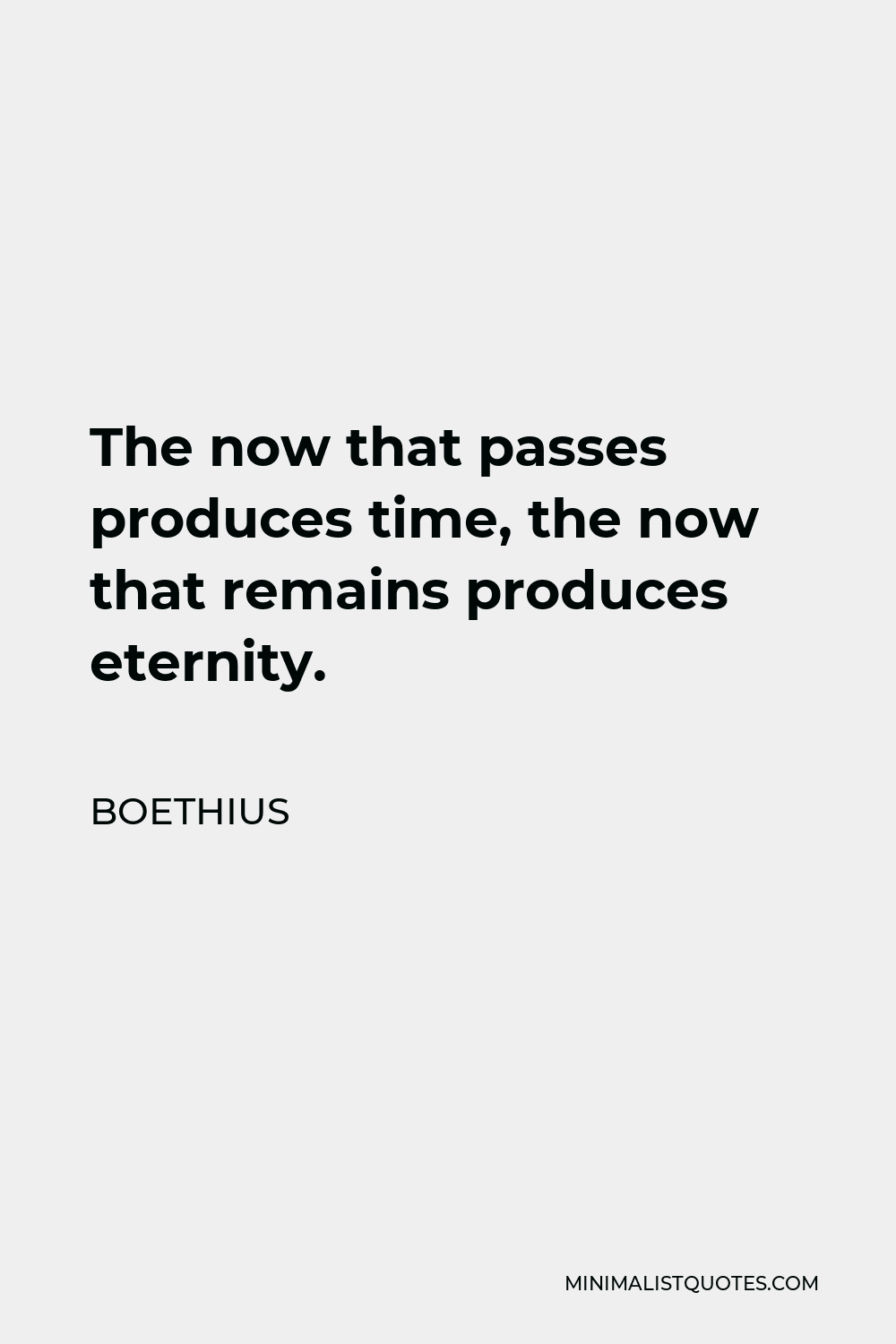Give me Thy light, and fix my eyes on Thee!
BOETHIUSThe now that passes produces time, the now that remains produces eternity.
More Boethius Quotes
-







-







He who is virtuous is wise; and he who is wise is good; and he who is good is happy.
BOETHIUS -







He who has calmly reconciled his life to fate, and set proud death beneath his feet, can look fortune in the face, unbending both to good and bad; his countenance unconquered.
BOETHIUS -







One’s virtue is all that one truly has, because it is not imperiled by the vicissitudes of fortune.
BOETHIUS -







Love binds people too, in matrimony’s sacred bonds where chaste lovers are met, and friends cement their trust and friendship. How happy is mankind, if the love that orders the stars above rules, too, in your hearts.
BOETHIUS -







The now that passes produces time, the now that remains produces eternity.
BOETHIUS -







Nothing is miserable unless you think it so.
BOETHIUS -







No man can ever be secure until he has been forsaken by Fortune.
BOETHIUS -







Music is so naturally united with us that we cannot be free from it – even if we so desired.
BOETHIUS -







Music is part of us, and either ennobles or degrades our behavior.
BOETHIUS -







Who would give a law to lovers? Love is unto itself a higher law.
BOETHIUS -







As far as possible, join faith to reason.
BOETHIUS -







You know when you have found your prince because you not only have a smile on your face but in your heart as well. Love puts the fun in together, the sad in apart, and the joy in a heart. Who would give a law to lovers? Love is unto itself a higher law.
BOETHIUS -







Every man must be content with that glory which he may have at home.
BOETHIUS -







For in all adversity of fortune the worst sort of misery is to have been happy.
BOETHIUS -







If there is a God, whence proceed so many evils? If there is no God, whence cometh any good?
BOETHIUS








